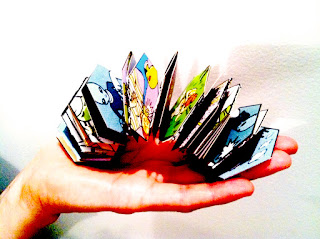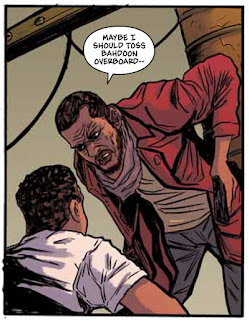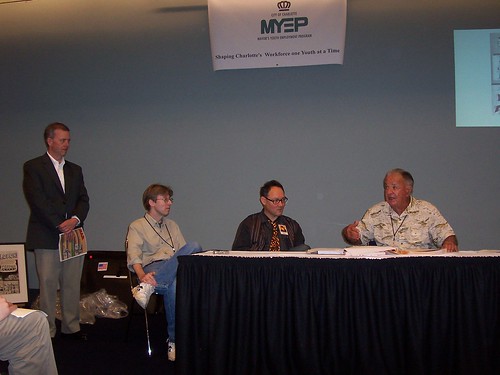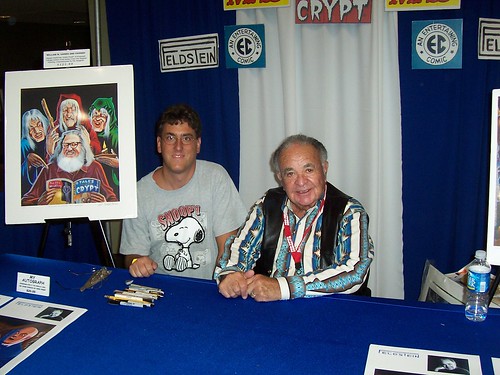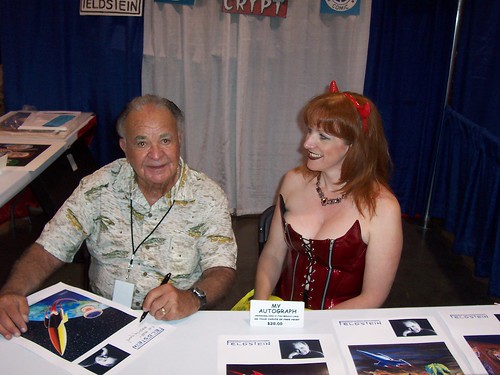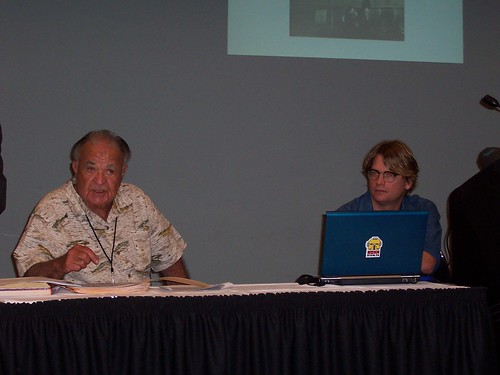 Baltimore
Comic-Con is one of the best and friendliest of the mid-size superhero
focused cons. Under the leadership of Marc Nathan and Brad Tree, it's
grown quite a bit in a decade and a half, but still remains enjoyable
for all ages and interests. Hang Dai Studios
is based in Brooklyn, but as usual will have a big presence at
Baltimore. My friend Dean Haspiel (and Hang Dai Studios founder) will be
there with the whole studio, a week after he, Christa Cassano and Gregory Benton attended
the Small Press Expo. We hope to have interviews with everyone in the
studio throughout the week. Our fourth interview is with Gregory Benton.
Baltimore
Comic-Con is one of the best and friendliest of the mid-size superhero
focused cons. Under the leadership of Marc Nathan and Brad Tree, it's
grown quite a bit in a decade and a half, but still remains enjoyable
for all ages and interests. Hang Dai Studios
is based in Brooklyn, but as usual will have a big presence at
Baltimore. My friend Dean Haspiel (and Hang Dai Studios founder) will be
there with the whole studio, a week after he, Christa Cassano and Gregory Benton attended
the Small Press Expo. We hope to have interviews with everyone in the
studio throughout the week. Our fourth interview is with Gregory Benton.What type of comic work or cartooning do you do?
Alternative comics leaning towards wordless and stream of consciousness.
How do you do it? Traditional pen and ink, computer or a combination?
My latest book Smoke has two story threads. One is executed in watercolor and ink, the other digital. My other recent books are all traditional media (watercolor, gouache, crayon, pen and ink).
When (within a decade is fine) and where were you born?
I was born on a steamy summer's day in NYC, sometime toward the end of the last century
What is your training and/or education in cartooning?
I went to RISD, majoring in illustration. At the time there was no "cartooning" discipline, but there were plenty of us who loved the art form and would hang out together to figure it out. Jason Lutes and painter Eric White among our group.
Who are your influences?
Artistically, the Euro artists Mattotti, Chaland, Baru, Muñoz really jazzed me as a young cartoonist. These days there is too much to love artist-wise. I find myself relying on nature and life drawing to inform my work.
If you could, what in your career would you do-over or change?
I would probably just have told my younger self to finish the projects started. That's a huge thing: keep the ball rolling.

What work are you best-known for?
Probably B+F (AdHouse). Hopefully soon for Smoke (Hang Dai Editions).
What work are you most proud of?
I did a book in 1996 called Hummingbird for Slave Labor Graphics. It was my first long work at 48 pages and it taught me a heck of a lot about comix-making: pacing, technique, storytelling. It is a completely unorthodox story, but I love it. It was recently reprinted in The Mammoth Book of Cult Comics.
What would you like to do or work on in the future?
I would like to keep making comics, simple as that. For me it is not a gateway to another media. I love it as a discipline, warts and all.
What do you do when you're in a rut or have writer's block?
Walks are nice. Stepping away for a while to take your mind off the story, getting involved in something unrelated to let your subconscious work on the problem. Also, talking with studio mates (like the fine ones I've got at Hang Dai) is massive in seeing the problem from a different perspective. Rending of clothes works in a pinch.
What do you think will be the future of your field?
The increasing legitimacy of comics art as literature. It has come a very long way since I began my career, but I don't think we've gotten anywhere near the ceiling.
Why are you at the Baltimore Comic-Con this year?
I've never been before! Really excited to meet some good people and hopefully turn them on to my work.
What other cons do you attend? The Small Press Expo, or others? Any comments about attending them?
This year I've been to SPX and will be attending BCC, CXC, NYCC, CAB, Genghis Con and Angouleme. I will also be a Visiting Artist at Center For Cartoon Studies in October.
What's your favorite thing about Baltimore?
I've never really spent time in Baltimore, but I'm looking forward to it!
Do you have a website or blog?
I can be found at www.gregorybenton.com, on Twitter @gregory_benton and Facebook. On both Instagram and Tumblr my handle is @gregorybenton.




